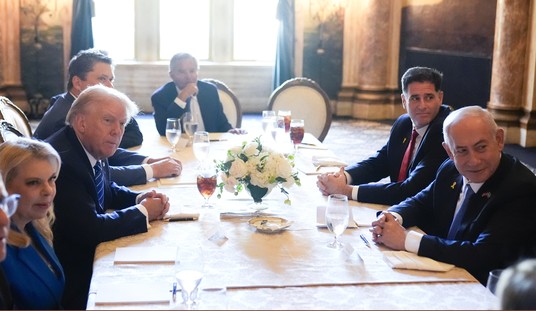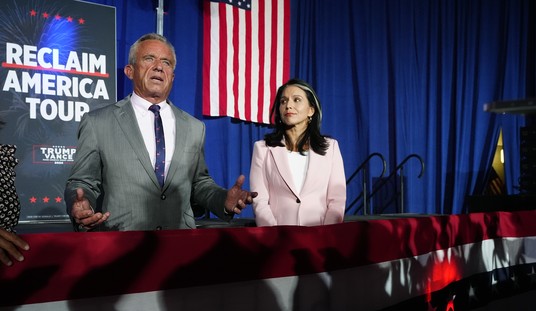Don’t break out the trumpets quite yet.
But Saudi Arabia’s Crown Prince Mohammed Bin Salman is, not by accident, displaying some refreshingly different and open attitudes during his ongoing three-week trip through the United States. Last week he met in the White House with President Trump, who touted a billion-dollars worth of military purchases by Riyadh.
This week in New York the 32-year-old heir to the throne of the ultra-conservative Sunni monarchy held an inter-faith meeting for the first time with Jewish rabbis, as well as Roman Catholics. That’s a big deal.
The Saudi Embassy said the meeting included Rabbi Richard Jacobs of the Union for Reform Judaism, Rabbi Steven Wernick of the United Synagogue of Conservative Judaism and and Allen Fagin, executive vice president of the Orthodox Union.
The prince has said he wants to move his country toward “moderate Islam, open to the world and all religions.”
Less than a year after being dubbed heir to the Saudi throne, this prince is driving an anti-corruption effort and has begun to gently push a broad range of reforms to open society and ultimately to diversify the oil-rich kingdom’s dependence on the vast reserves of black gooey stuff beneath the sands.
Other Arab societies have gone down this bumpy social and economic reform road. The more progressive United Arab Emirates, for example.
In Saudi Arabia only private observances of other faiths are permitted for now. No churches or synagogues are allowed. Change is incremental. But last December observers remarked on an actual public Christmas tree display.
From outside the kingdom, changes like allowing women to drive cars can seem ridiculously overdue, even inconsequential.
But opening a modern-looking yet in many ways medieval society to radical changes is a very tricky incremental process laden with dangers and internal resistance. Just ask Egypt’s Anwar Sadat. Oh, right. You can’t. He’s dead, assassinated by the Muslim Brotherhood for talking to Israel.
Some of the hundreds of Saudi arrests last fall may well have been less for corruption and more over potential political opposition.
The influential Saudis, among others, were delighted with the end of the Obama presidency that sought to work with Shiite Iran and have worked to build confidence with the Trump administration.
They arranged a massive Muslim summit last year for the president to address on his first foreign trip, symbolically important as Air Force One flew directly from Riyadh to Tel Aviv.
Make no mistake, however. The prince isn’t just glad-handing. The royal family and Trump are also united by a deep-seated suspicion of Iran and its ambitions for nuclear weapons and ICBMs.
Iran already has its expansionist tentacles in Iraq, Syria and Yemen, where the Saudis, with some U.S. advisory assistance, are fighting a proxy war with Tehran-backed Houthi rebels.
Later this spring Trump is expected to announce the ultimate fate of Obama’s nuclear deal with Iran.







Join the conversation as a VIP Member